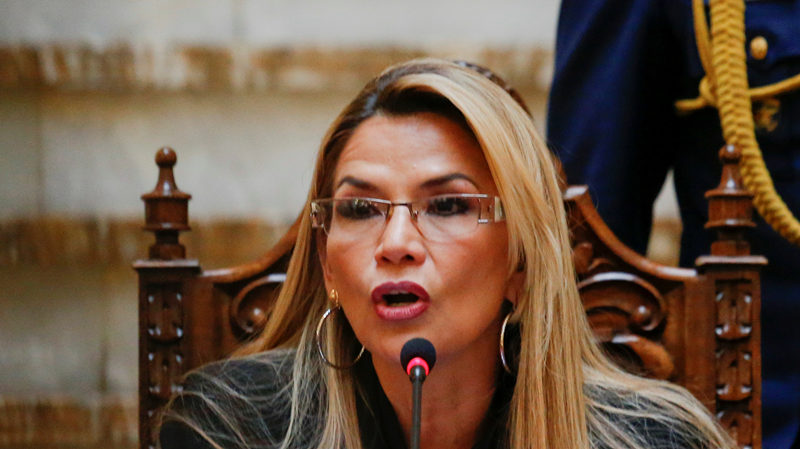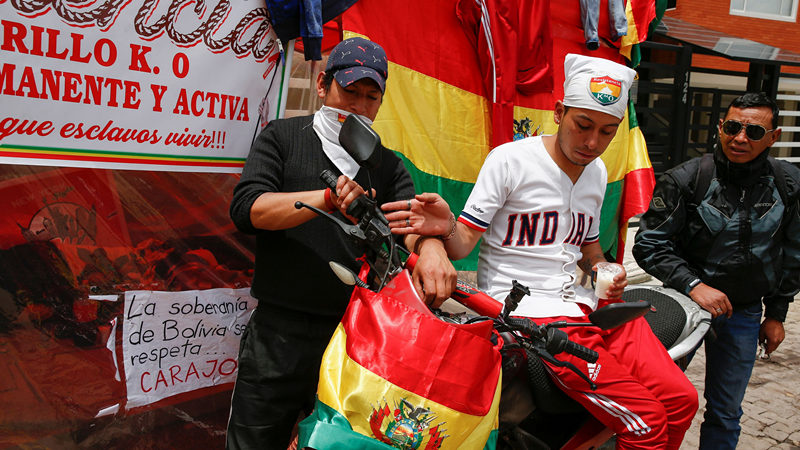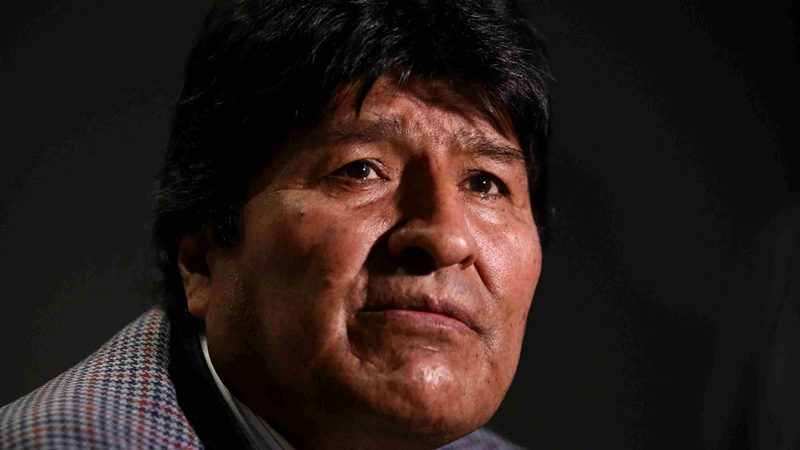Bolivia's government expelled Mexican and Spanish diplomats on Monday, escalating a diplomatic dispute after Mexico's embassy in La Paz granted asylum to allies of Bolivia's former president Evo Morales.

Bolivia's interim president Jeanine Anez speaks during a news conference at the presidential palace in La Paz, Bolivia, December 30, 2019. /Reuters Photo
Bolivian caretaker President Jeanine Anez said her administration had asked Mexican ambassador María Teresa Mercado and several Spanish officials to leave the country within 72 hours and called them "persona non grata."
"This group of representatives of the governments of Mexico and Spain has seriously harmed the sovereignty and dignity of the people and the government of Bolivia," said Anez.
Shortly after, Mexico's foreign ministry said it would recall Mercado to ensure her safety and branded Bolivia's move as "political in nature."
In Madrid, Spain's foreign ministry said it would expel three Bolivian diplomatic staff over the matter.

A sign reading "The sovereignty of Bolivia is respected... damn it" is seen as members of a civil resistance group gather at the entrance of Urbanizacion La Rinconada, where the residence of Mexico's ambassador is located, in La Paz, Bolivia, December 30, 2019. /Reuters Photo
Bolivia's disputed October election sparked widespread protests and Morales resigned last month in the face of growing civil and military pressure. Anez took over by default, and has made sharp policy shifts away from Morale's government, fraying ties with leftist allies in the region.
Morales, meanwhile, claimed he was toppled in a right-wing "coup" and many of his allies have rallied behind him with the country headed for new elections in 2020. He fled the country and was granted asylum in Mexico. He is now in Argentina.
Mexican officials said the government aims to uphold ties with Bolivia and has not declared the Bolivian ambassador to Mexico persona non grata.
"For now, the foreign ministry does not have the intention of breaking diplomatic relations with Bolivia," Interior Minister Olga Sanchez told reporters. She added that tension between the two nations was nevertheless undeniable.

Former Bolivian president Evo Morales during an interview with Reuters, in Mexico City, Mexico, November 15, 2019. /Reuters Photo
On Friday, Mexico's government said Bolivian authorities harassed and intimidated its diplomatic staff and impeded the departure of Spanish officials visiting its embassy in the capital where a number of Morales' allies had holed up.
Anez said the Bolivian government would not tolerate people "trying to cover up and protect criminals who have committed crimes of sedition, armed uprising and terrorism" and that Bolivia would not be a "colony" of any other country.
According to Bolivia's government, a former senior aide to Morales, Juan Ramon Quintana, is among the nine people who have taken asylum in the Mexican embassy.
Quintana, another ex-minister Wilma Alanoca and the others have all been charged with sedition and terrorism offenses by the new government, which has refused them safe passage out of the country.
Mexico said last Thursday that it was asking the International Court of Justice to mediate the dispute.
Mexican Foreign Minister Marcelo Ebrard said in a tweet that Mercado had "fully represented Mexico and its cause in favor of asylum and peace." Mercado wrote in a post in response she was proud to uphold Mexico's "principles and tradition of asylum."
(With input from Reuters)


